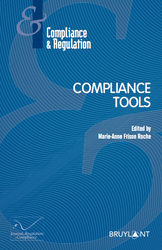Drawing up Risk Maps as an Obligation and the paradoxe of the "Compliance Risks", in Frison-Roche, M.-A. (ed.), "Compliance Tools"
To read this summary in English, please click on the British flag

Référence générale : Frison-Roche, M.-A., Drawing up Risk Maps as an Obligation and the paradoxe of the "Compliance Risks", in Frison-Roche, M.-A. (dir.), Compliance Tools, série "Régulations & Compliance", Journal of Regulation & Compliance (JoRC) et Bruylant, 2021, p. 61-72
___
Résumé de l'article :
There are few synthetic or theoretical studies on Risk Mapping even though it is in fact the Compliance central tool, perhaps because it is more a management tool than a legal one. Risk Mapping is often described but does not receive any other legal qualifications than being a "modality", suffering in this respect from an evil which affects the whole of Compliance, still little understood by Law, attention often so focused on the Ex Post (sanctions) while Compliance is by nature in the Ex Ante. Going from disarray to incomprehension, everyone can note the existence of "compliance risks" among the mapped risks, because if as so many affirm that it would be necessary to speak only of simple conformity as obedience, demonstrated in Ex Ante, to Law, how a sub-set of a tool would therefore have the same object as the set of Law that this tool serves ... This aporia can only be resolved if Compliance Law is defined substantially by its "monumental goals" which exceed obedience to regulations.
Consequently, Law taking up Risk Mapping, this mechanism may first appear as an ancillary obligation to the main obligation consisting in achieving "monumental goals". The ancillary obligation to draw up the maps is an obligation of result, while the main obligation to achieve the monumental goals is an obligation of means. These cartographies being very diverse and being only occasionally targeted by specific laws, it can also constitute only a legal fact or, through the play of various charters, a unilateral legal commitment. But it isnbecoming the basis of an autonomous legal obligation incumbent on enterprises in position to know certain risks, obligation referring to the existence of a subjective right tof knowing and measuring them ("right to be worried") which the third parties who are going to run them would hold, thus allowing them to choose to run them, or not.
____
Consulter une présentation générale du volume dans lequel l'article a été publié.
____
les commentaires sont désactivés pour cette fiche